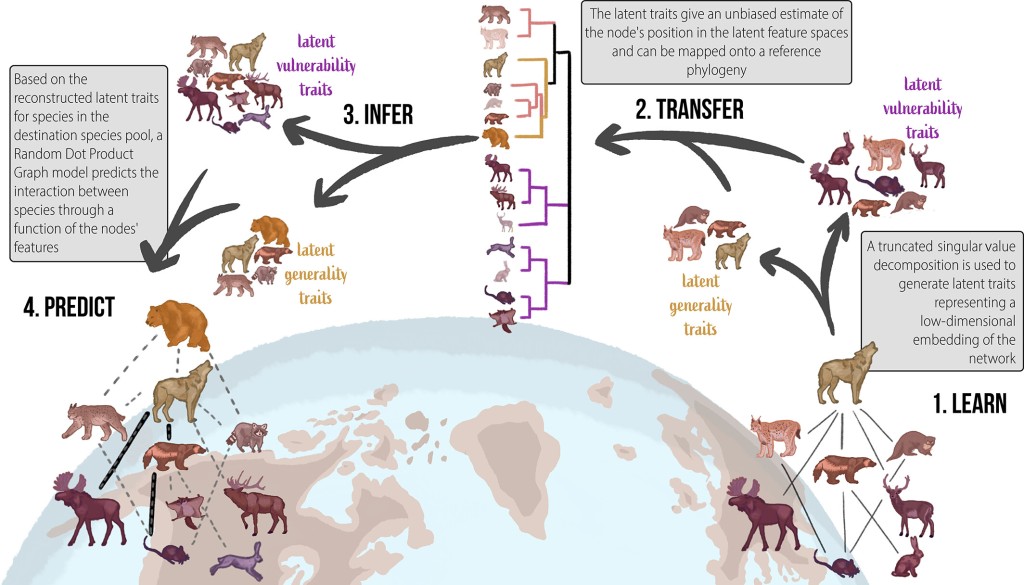We’re excited to announce Tanya Strydom as the winner of the 2022 Robert May Prize , celebrating the best article in the journal by an author at the start of their career.
Winner: Tanya Strydom
Research: Food web reconstruction through phylogenetic transfer of low-rank network representation
About the Research
Despite their importance in many ecological processes, collecting data and information on ecological interactions is an exceedingly challenging task. For this reason, large parts of the world have a data deficit when it comes to species interactions and how the resulting networks are structured.
In their winning paper Tanya and their team present a general method to infer potential trophic interactions. Using a machine learning method which applies the mechanisms learned from one problem onto another. Using information from species they apply this transfer learning from a known interaction network they can infer the latent traits of another species pool for which there is no prior interaction data based on their phylogenetic relatedness to species from the known network.
One of the core challenges that are faced by network ecologists is the general shortage of interaction data, mostly because sampling interactions in the field is hard, which means we need tools to help us predict what a network might look like for a given location. This shouldn’t be a definitive answer, but a prediction of the general “shape” of the network, and the most likely interaction would help guide sampling in new places. That is where the methodology developed in this paper comes in – something that is inspired by the concept of transfer learning.
Simply put, we can learn something from networks for which we do have empirical data and bring this information with us across space or time to construct a probabilistic network for a region or species pool that we had no prior interaction data for. Using known interactions for European mammals, how they how they interact using graph embedding was learned, and transferred (using phylogenetic relatedness) to construct a network of probabilities for Canadian terrestrial mammals.
The hope is that the inherent flexibility of this framework combined with its low computational cost will allow us to leverage the interaction data that we do have to help us create ecologically plausible networks ‘out of nothing at all’, something that will be of particular value for regions for which we have limited or no interaction data (but do have a species list).

About the winner
Tanya’s initial training, which consisted of a B.Sc. and a B.Sc. (Hons) at the University of Pretoria and a M.Sc. at Stockholm University, focused on plant ecology. During this time, she was particularly interested in the effect of microclimates on plant communities. Despite enjoying the more practical nature of her previous work, Tanya has always had an avid interest in the scariest (mathematical and computational) side of ecology. This led her to her current position as a Ph.D. candidate under the supervision of Timothée Poisot at the Université de Montréal.
Her current research consists primarily in spending a lot of time thinking and talking about the information contained in ecological networks, and how this information allows us to predict interactions. A working group funded by the Canadian Institute of Ecology and Evolution served as a catalyst to the development of the graph embedding and transfer learning framework. The opportunity to develop methods and tools that can be used by others is something that Tanya finds to be a particularly rewarding aspect of her work and something she hopes to pursue more of in the future.

